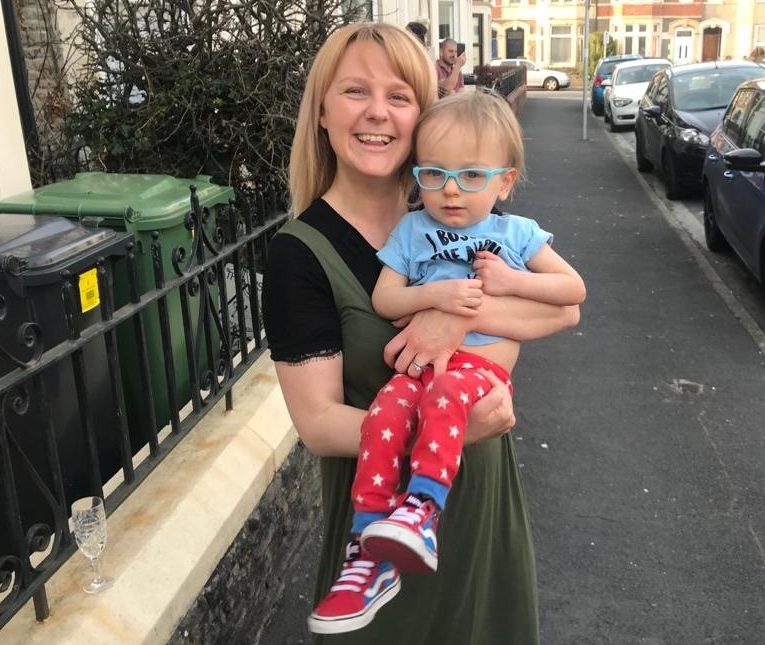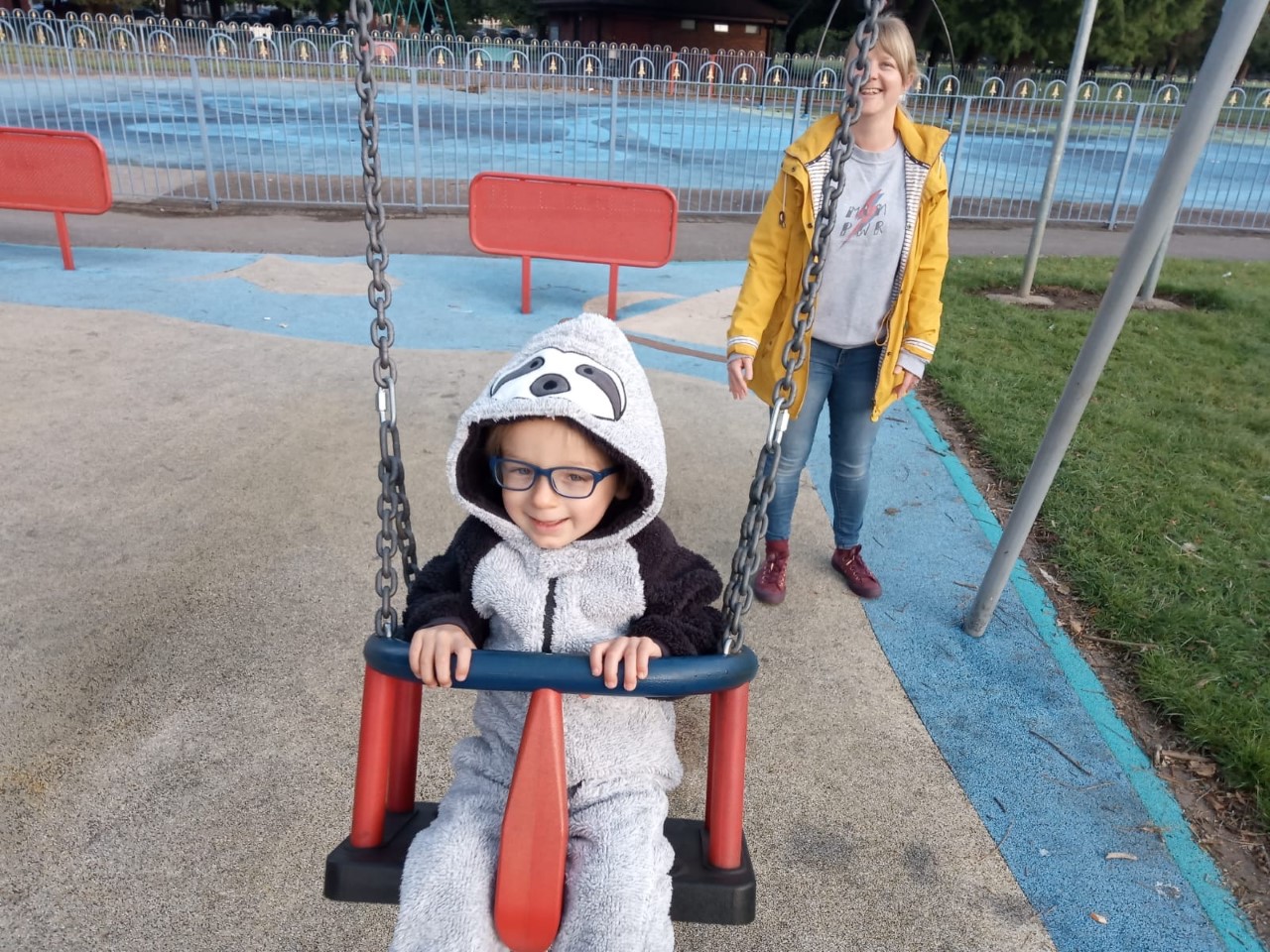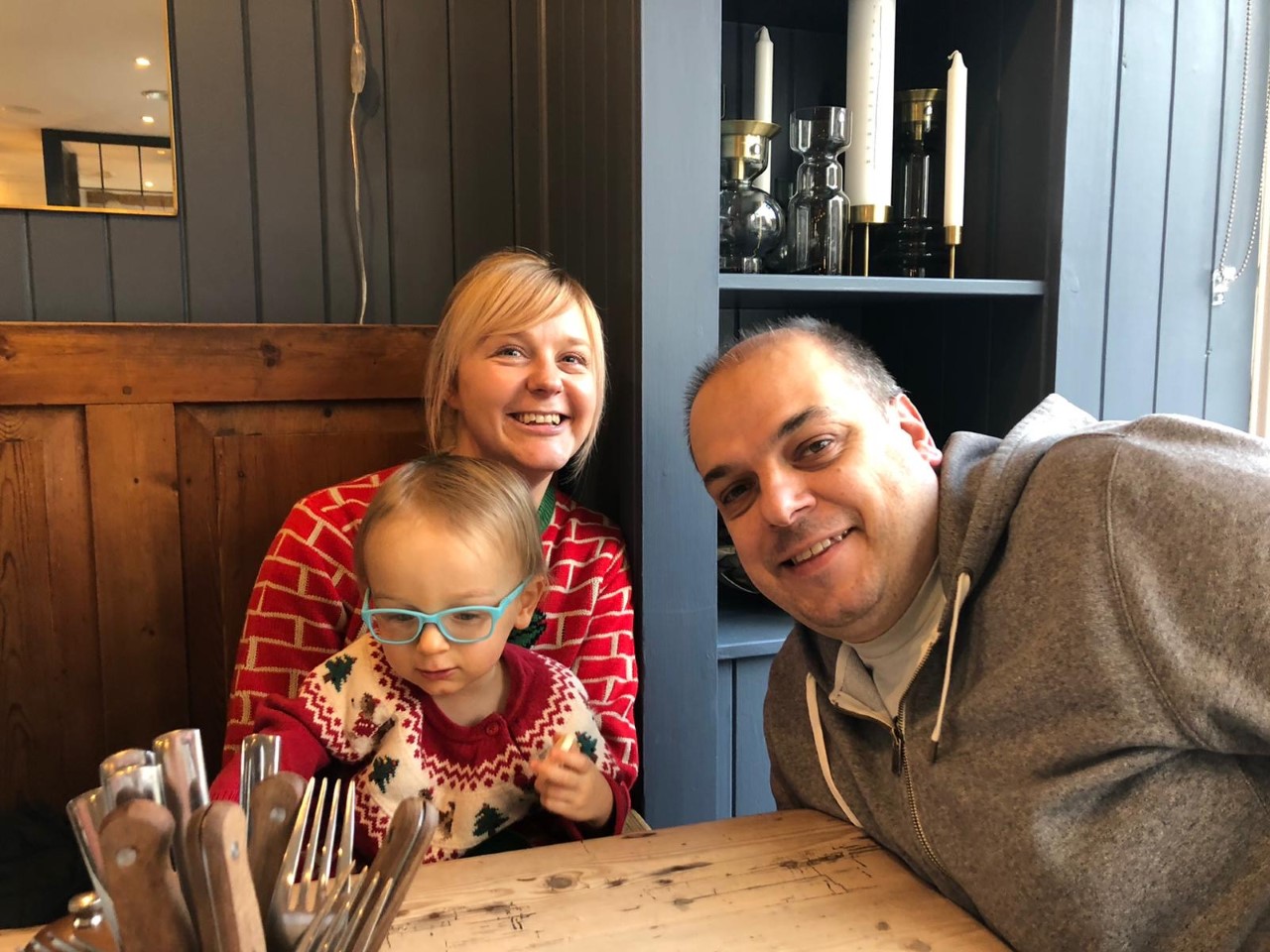
A conversation about mental health: Adrienne and Otis' story
October 09, 2020
“Every single mum that I have met through hospital, their experience has had a lasting impact on their mental health. Post-traumatic stress is something that we all talk about.”
Over the course of Otis’ first stay in Noah’s Ark Children’s Hospital, mum, Adrienne, left on just three occasions over the entire 115 days.
“I was really anxious about the idea that we might not be able to get back in time, if anything happened,” Adrienne said.
Otis spent much of this first stint in hospital on a ventilator, meaning Adrienne had little else to do but to watch a still baby, surrounded by beeping machinery.
She would spend, on average, 16 to 20 hours each day on the ward, returning to the Ronald McDonald House Cardiff to sleep, eat, and steal moments to relax during medical rounds, when she wasn’t permitted to stay in the room with her new-born son.
“I’d go back to the Ronald McDonald House and I’d sit and watch TV. And every day, one of the staff would come and sit with me,” she said.
“Sometimes it would just be as a comfort, having someone sit next to you. Sometimes if I wanted to talk, we’d talk, sometimes they’d just tell me about the dates they’d been on, the everyday things they’d done.”
Otis arrived 14 weeks early, on the last day of August in 2017. He weighed just 1lb 5 at birth and doctors soon discovered he had bleeds on both sides of his brain, which had occurred in the womb.
When he was around a month old, his condition deteriorated, becoming critical. His brain bleeds developed, his blood pressure reading dropped, and his oxygen requirement hit 100%.

For most of his time on the Neonatal Intensive Care Unit at Noah’s Ark Children’s Hospital, Otis was aided by 37 types of medication. He underwent blood transfusions, platelet transfusions, two lumbar punctures and laser eye surgery, amid an array of other treatments to treat what seemed like countless issues; Candida Sepsis, E. coli and Hydrocephalus, to name just a few.
Otis is a fighter, and despite all the setbacks, he was discharged from hospital shortly after Christmas.
Adrienne and her husband, Ray, spent a happy eight months at home getting to know their boy before their lives, once again, were thrown into turmoil.
In September 2018, Adrienne took Otis back into hospital to have a chest infection checked out. In hospital, Otis went downhill, fast, and within 24 hours he had been transferred to the Paediatric Critical Care Unit (PCCU) where he was sedated and put on a ventilator.
“The second time we were in Ronald McDonald House, was probably, mentally, the worst time for me,” Adrienne said. “Unfortunately, my husband was ill at the same time, so I didn’t have him there.”
Unprepared and overwhelmed, she spent Otis’ first night in PCCU in the parent’s room on the ward. It was a welcome relief when two of the team from our Cardiff House bumped into her on their ward round, the next morning.
“They came in and I just broke into tears. I explained the situation and told them that Ray couldn’t be with me, and they stayed, and sat in the room with me. When the doctors came in to explain everything that had happened with Otis – he had just been put back on a ventilator – they sat and stayed with me through the whole meeting.”
The pair sorted out a room for Adrienne at the House, where she stayed, without Ray, for two weeks.
Adrienne said this period brought on a bout of anxiety like she’d never experienced before.
“Each day would have an absolute rollercoaster of emotions; one minute everything would be going fine, and then literally the next minute, something’s gone wrong and your child’s area is surrounded with a group of different healthcare professionals.
“I can be a panicker. If I feel particularly anxious, my heartrate starts going, I feel really lightheaded, I usually don’t really want to eat.”
“I definitely experienced all of those pretty much daily through Otis’ journey.”

Having the Cardiff House to retreat to, and the team there as support, played a huge part in helping Adrienne get through it, she said.
After two tumultuous weeks, Ray was well enough to join his wife, and after another week Otis was discharged from hospital.
Adrienne saw a counsellor for some time following this, to help her deal with Otis being in hospital.
“You start over-processing everything,” she said.
The period was equally as difficult for Ray. Seeing Otis critically ill was the “worst feeling in the world”, he said, and one that was both physically and mentally exhausting.
“You are tired, confused (because you are being bombarded with information), nervous and scared.”
The House played a huge part in helping Ray cope with the situation, he said.
“The staff would be there for you, asking how Otis was, how we were, checking that we were eating, listening to our hopes and fears and on some occasions literally being a shoulder to cry on. But they also made us smile and just talked to us about day to day things. We needed to have that at the time, although we didn’t necessarily recognise it.”
Adrienne remains grateful for the staff at our Cardiff House, who became she and Ray’s sconfidants, the people they would share their feelings with, and who would pick them up after a bad day.
“It absolutely became our ‘home away from home’.”
Help us provide free home away from home accommodation to support families with children in hospital with a donation.
